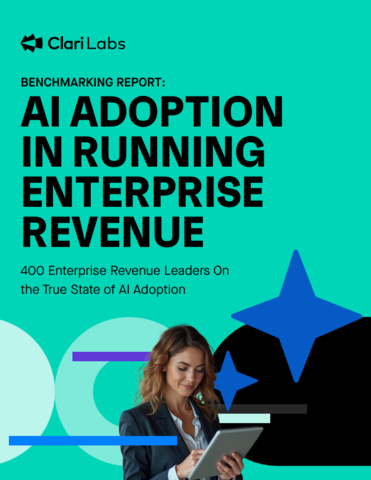Preparing CFOs for the age of digital transformation

AI and data are significantly impacting the finance function across businesses; Matthew Cartwright at the Hackett Group considers what the finance function will look like in 10 years and how leaders can facilitate this transition
Finance is experiencing nothing short of a metamorphosis. In recent years, the pressures of economic volatility, technological disruption and rapidly evolving business expectations have converged, fundamentally reshaping the role of the finance function. As artificial intelligence (AI) and digital technologies become ever more integral, even the most stable and traditional finance departments are being called to adapt.
For many chief financial officers (CFOs) and finance leaders, including chief administrator officers, controllers, and financial planning and analysis leaders, especially those who have not experienced significant transformation in the past decade, this new era raises important questions: How is the finance function changing? What will it look like in 10 years? What are the real implications of digital and AI advancements? And, crucially, how can finance leaders prepare their teams and organisations for a future that is arriving faster than anyone anticipated?
The role of finance in a digital world
A decade ago, the finance function was predominantly characterised by retrospective reporting, regulatory compliance and cost management. Today, leading organisations – referred to as Digital World Class® by The Hackett Group® – are redefining these standards. These finance teams operate at the convergence of technology, data analytics and business strategy, serving not only as stewards of financial integrity but also as drivers of organisational change and value creation.
Recent research by The Hackett Group® indicates a significant evolution in the perception of finance leadership roles. Last year, 41% of finance leaders identified as valued business partners; this year, that proportion increased to 65%, representing a 59% rise within 12 months. Within Digital World Class® organisations (the top quartile of performers), finance leaders are taking an even more proactive approach, positioning themselves as architects of transformation who leverage advanced analytics and AI to achieve operational excellence and deliver strategic insights. For example:
- Efficiency through automation: Digital World Class® finance teams spend 42% less time compiling data and invest 68% more time in decision-making than their peers. This is achieved at a 45% lower cost as a percentage of revenue.
- Focus on analysis, not just reporting: These organisations dedicate 51% more analyst time to proactive decision-making and planning, rather than historical reporting. They spend 71% more time on business simulation and modelling.
- Superior data governance: Digital leaders recognise that trusted, accessible data is the backbone of modern finance. They are 21% more likely to own enterprise data governance and 2X more likely to democratise access to budgeting and insights for managers.
The impact of AI and automation on the future of finance
AI – especially generative and agentic AI – is accelerating this transformation of finance. Advanced AI tools now enable rapid and accurate forecasting, scenario modelling, and risk analysis, while automation handles routine tasks like invoice processing, account reconciliation, and transaction matching. This shift frees finance professionals to focus on interpreting results and providing strategic advice.
If generative AI was the spark, agentic AI is the engine. These autonomous agents do more than automate – they orchestrate, learn, adapt and act with intent, evolving finance into a proactive powerhouse.
Already, agentic AI solutions autonomously prepare journal entries, manage financial close workflows, and continuously scan for risks to deliver real-time forecasts and empower finance leaders to adjust with agility.
AI-driven dashboards are replacing static reports, enabling continuous close and real-time decision-making. Previously manual areas – spend optimisation, credit analysis, and environmental, social and governance compliance – are being reimagined by intelligent agents that streamline processes and surface insights.
This transformation is just beginning.
For traditional finance teams, the shift may seem daunting. Yet, in uncertain times where agility and fast decision-making are critical, digital finance capabilities excel. The modern finance model blends human expertise with digital colleagues: analysts, data scientists and risk specialists increasingly supported by AI agents that automate workflows and deliver real-time insights, helping organisations navigate complexity and drive value.
What tomorrow’s finance workforce looks like
The finance team of the future will look different from what many organisations have today. The old model – where most staff focused on transactional accounting – will give way to a more balanced structure. Specialists in business analysis, data management, and risk will represent a larger share of the team, while traditional roles will be augmented and, in some cases, replaced by digital agents.
This transformation demands more than technical skills. According to The Hackett Group®, 81% of finance professionals see a growing need for advanced collaboration, problem-solving, and change management capabilities. Finance leaders must be able to interpret complex data, communicate its implications and persuade stakeholders to act.
Over the next decade, agentic AI will redefine what it means to work in finance. Transactional roles will fade. In their place will be analysts, data scientists and transformation architects – all supported by digital colleagues that never sleep.
The implications are profound. Career paths will shift from accounting ladders to digital apprenticeships. And the CFO? No longer just a steward of capital, but a catalyst for enterprise reinvention.
Act now or fall behind
The prospect of large-scale transformation can be overwhelming, especially for CFOs and finance leaders who haven’t yet embarked on this journey. But to lead in this new era, you must act now. The Hackett Group® recommends a bold, structured road map to guide you:
- Reimagine the operating model: Clearly define the role of finance within your organisation and set expectations for team members. Outline how humans and AI will collaborate to deliver insight and impact.
- Invest in data quality and governance: Establish clear ownership and governance structures to ensure your team manages and leverages data effectively. Remember, AI is only as good as the data it learns from.
- Automate where it matters most: Start with repetitive, high-volume tasks such as invoicing and reconciliations to achieve quick wins in efficiency and accuracy.
- Upskill your people: Build fluency in analytics, digital tools, and change leadership through training and continuous learning.
- Adopt a partnership mindset: Engage with business unit leaders to understand their priorities and proactively bring financial insight to the table. Shift the mindset from reporting to advising – from control to collaboration.
- Collaborate for responsible AI: Prioritise the responsible development and usage of AI by working with trusted technology partners and maintaining robust oversight. Ensure transparency, fairness and alignment with business goals.
- Understand what your strategic partners can provide: Every software and service provider has been investing heavily in AI. Determining what to leverage from each has become its own challenge, but a holistic enterprise strategy is needed to target the best business outcomes.
Seizing the moment
For finance leaders, the message is clear: Standing still is no longer an option. While you don’t need to transform overnight, embracing change is essential to remain relevant. The fundamentals of finance – integrity, stewardship and risk management – remain crucial, but the methods of delivery are evolving.
By adopting a measured and informed approach to digital transformation, CFOs and finance leaders can reposition their teams as indispensable partners in driving business value. AI and automation are not threats to the finance profession but powerful tools that – when harnessed thoughtfully – will secure your organisation’s future.
Now is the time to set a new standard for finance, one that is agile, data-driven and ready for whatever the future holds. Agentic AI isn’t a distant vision, it’s here, and it’s accelerating. For finance leaders, the question is no longer if, but how fast. The organisations that embrace this shift will not only survive, they’ll lead.
Matthew Cartwright is Director, Finance Transformation at The Hackett Group
Main image courtesy of iStockPhoto.com and Shinsei Motions

Business Reporter Team
You may also like
Most Viewed
Winston House, 3rd Floor, Units 306-309, 2-4 Dollis Park, London, N3 1HF
23-29 Hendon Lane, London, N3 1RT
020 8349 4363
© 2025, Lyonsdown Limited. Business Reporter® is a registered trademark of Lyonsdown Ltd. VAT registration number: 830519543





